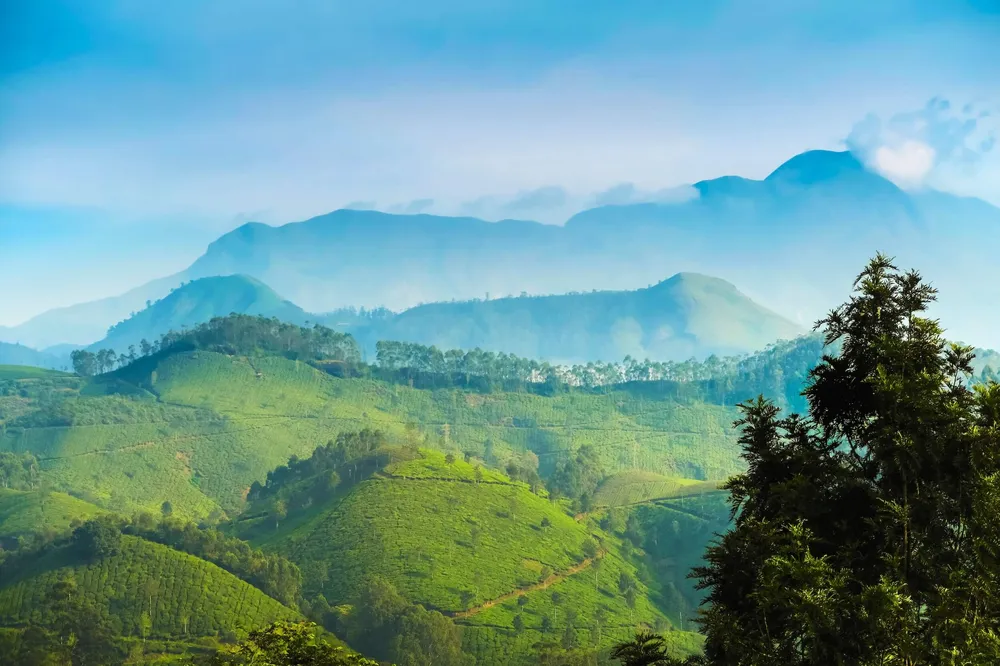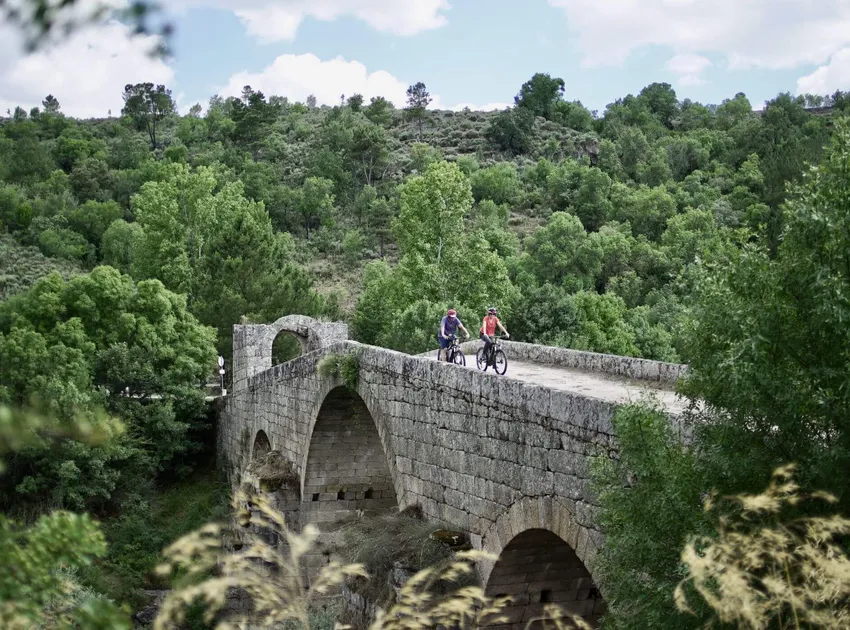Race Across the World: A Slower Side of India
If, like us, you’ve been hooked on this series of BBC’s Race Across the World, you’ll have been blown away by India's incredible variety of landscapes, cultures, traditions and architecture. This is a country that truly has everything, from magnificent forts to sprawling tea plantations, peaceful backwaters and jungles bursting with wildlife.
It's easy to picture India as simply a network of huge, bustling cities, but there is so much more. Many of us can relate to contestant Sioned’s overwhelm when tackling busy bus stations and complex travel arrangements in central Delhi – a far cry from her home in rural Wales. But, as we see on the show, there are plenty of peaceful spots in India that offer a chance to slow down.
Here are some of our favourites, some of which have been featured on this year’s Race Across the World.

McLeod Ganj, Himachal Pradesh
Perched in the foothills of the Himalayas, McLeod Ganj is a serene retreat imbued with Tibetan spirit. The fifth checkpoint on Race Across the World, the teams took a moment here to recharge for the next leg of their journey, breathing in fresh mountain air and overlooking endless vistas.
This small hill town offers a contemplative atmosphere, with incense wafting through narrow streets lined with prayer flags, and peaceful monasteries inhabited by monks in maroon robes. Whether you prefer to hike through pine forests or simply relax with a butter tea or thukpa (a noodle soup that will warm the soul), McLeod Ganj offers the perfect antidote for overstimulated senses.

Pench and Kanha National Parks
In the Central Highlands of Madhya Pradesh lie swathes of wilderness that inspired The Jungle Book. As you breathe in the silence of the forests, broken only by the calls of an extraordinary range of birdlife, it's not hard to see why Kipling was so inspired by this magical place.
The sprawling teak and sal forests of Pench and Kanha were once depleted by hunting and logging but, thanks to tireless conservation efforts, are once again bursting with wildlife, including the elusive Royal Bengal tiger. With a little patience and some expert local guides, you'll have a good chance of spotting tigers, leopards, sloth bears and more.
The land is dotted with farming and tribal villages, where residents live a slower and much more traditional lifestyle than those in India's major cities. For us, it's a safe and peaceful place to explore on two wheels, truly immersing yourself in the landscapes.

Keralan Backwaters
Despite being a popular spot for travellers, the backwaters of Kerala have maintained their reputation as one of India's most tranquil havens. The labyrinthine network of canals, rivers, and lakes snake gently through coconut groves, paddy fields, and fishing villages. The waters are integral to local life, with locals bathing, praying, fishing, and commuting in the channels.
Aboard a traditional houseboat, you'll have the chance to eat aromatic fish curries and fragrant biryanis, cooked with fresh, local ingredients. Keralan cuisine has an abundance of banana leaves, sea food, coconut and heavenly spices, especially cloves, cinnamon and ginger.
One of our favourite spots is Paravur Lake and its surrounding mangroves, a serene spot full of wildlife that's best explored by kayak.

Hyderabad
Hyderabad may not seem like the obvious choice for a quiet holiday, but beneath the bustle lies a slower way of life. The Charminar monument and winding lanes of Laad Bazaar offer a glimpse into the region's traditional Deccani Muslim culture, while stately palaces such as Chowmahalla and Falaknuma exude opulence.
What makes Hyderabad special for the slow traveller is its food and poetry. Days can be spent lingering in historic Irani cafés over cups of chai and Osmania biscuits, or savouring rich biryanis in hushed, tiled dining rooms that haven’t changed in decades. There’s a quiet pride in the city’s traditions, from Urdu literature to bidri handicrafts, that reward travellers who take the time to stop and notice.

Konkan Coast
Stretching from Mumbai down to Goa, the Konkan Coast is a largely overlooked strip of pristine beaches, laterite cliffs, sleepy fishing villages, and coconut palms. It’s where India reveals a more elemental, untouched version of itself. The beaches here, such as Guhagar, Vengurla and Ganpatipule, are often empty except for fishermen casting nets or children playing cricket on the sand. Inland, you'll find cashew plantations, mango orchards, crumbling forts and ancient temples.
A world away from Goa's most commercialised beaches, Konkan offers a simpler type of luxury away from the crowds.

Western Ghats Mountains
The Western Ghats are a UNESCO World Heritage-listed mountain range stretching from Maharashtra to Kerala, cloaked in thick forests and spice plantations. This is one of the world's most biodiverse landscapes, with over 300 threatened animal species and over 5,000 different flowering plants.
The land covered by the mountain range is vast, meaning there are plenty of quiet spots away from the tourist trail. Life unfolds at a slower rhythm here, and the best way to experience this is staying in one of the many home stays or eco retreats that dot the hillside.
Whether wandering the coffee estates of Coorg, birdwatching in the evergreen forests of Wayanad, or walking through the cool, misty hills of Munnar, the Ghats deliver a peaceful and meditative escape into nature.
If you’ve been inspired to discover a slower side of India, find out more about our scheduled journey - Tigers and Tribes of Central India.
We can also organise extensions through other parts of India, whether that’s some of the peaceful spots listed above or the country’s fascinating cultural hubs. Contact us to find out more.



